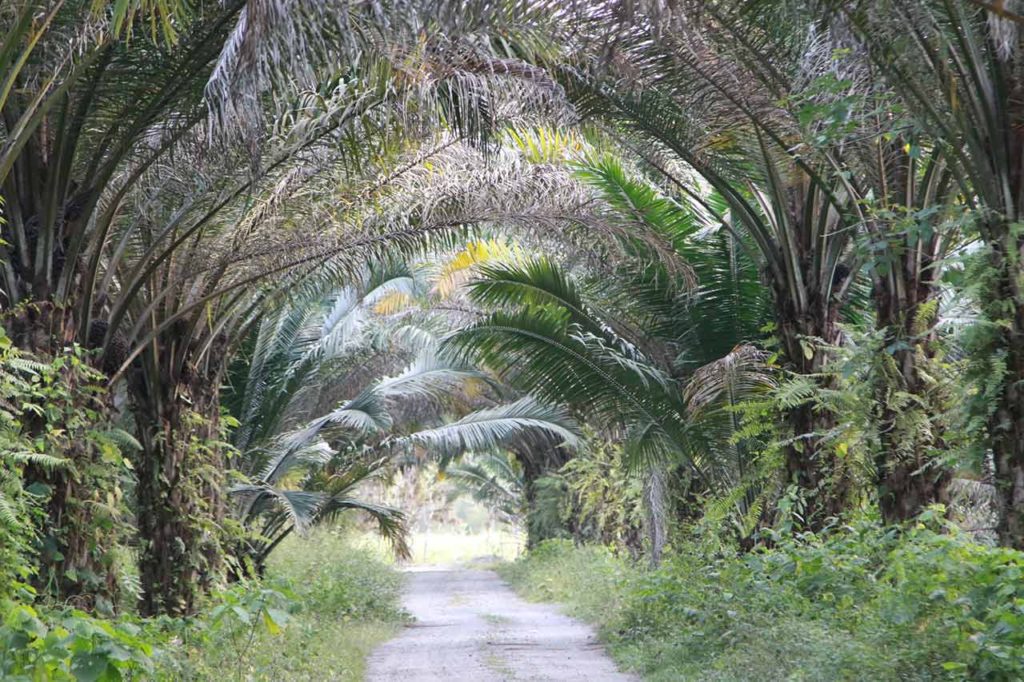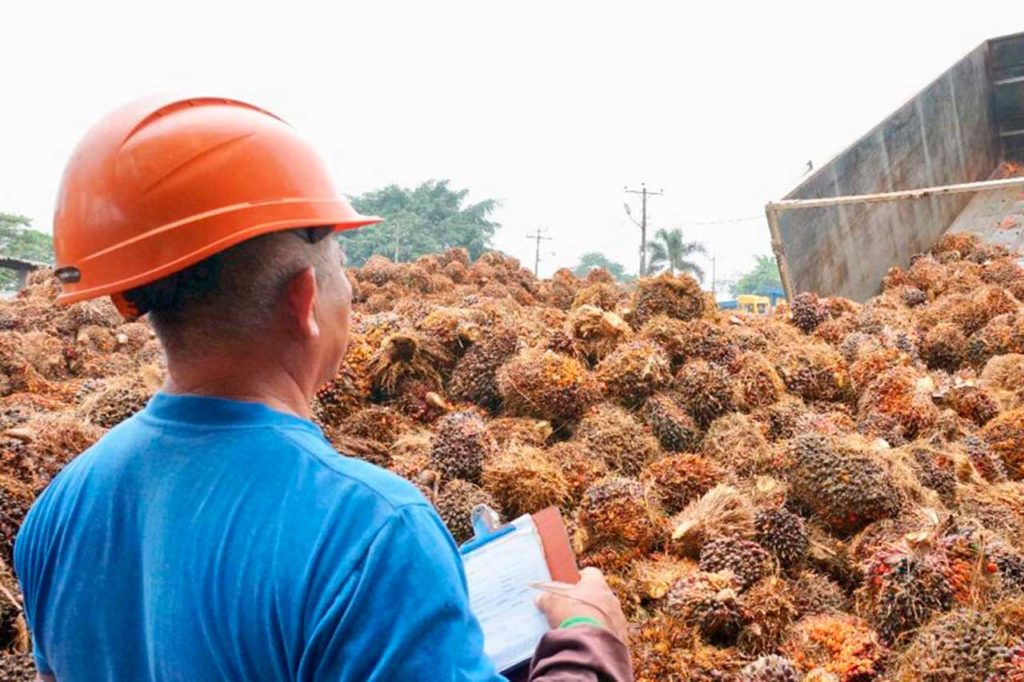Over the past 20 years, the oil palm production chain has been one of the fastest growing sectors in the country, going from producing 198 thousand to 549 thousand tons between 1998 and 2018. This growth has brought economic and social benefits to the country; however, it has not been without conflicts. For example, the 2008-2014 deforestation map shows that 3% of forest areas in 2008 had been changed to other land uses by 2014, and were occupied by oil palm crops (MAE 2015).

In response to this problem, Ecuador’s REDD+ Action Plan “Forests for Good Living” (2016-2025) identified initiatives that promote sustainable, deforestation-free production. For example, it identified the Roundtable on Sustainable Palm Oil (RSPO) certification as a tool to guarantee that the production of this crop respects the labor rights of indigenous communities; that new areas of high environmental value are not occupied and that biodiversity is not threatened; on the contrary, it promotes good agricultural practices.
At an international level, this certification has proven to be an effective instrument for reducing the negative impacts of this production chain. RSPO is a nonprofit organization of oil palm producers, processors, traders, consumer goods manufacturers, retailers, banks and investors, as well as environmental and social non-governmental organizations (NGOs) that came together to develop and implement global standards for sustainable palm oil. To support this effort, commitments led by the Government and private companies were made at the country level to create a sustainable palm market. At present, Norway, Denmark, Belgium, France, Germany, Austria, Switzerland, England, Holland, Sweden and Italy lead the list of countries committed to responsible consumption of palm oil.

A weakness of the certification is that when applied at the plantation level, its impact has always been limited geographically. The benefits of certification, such as improved business opportunities, have been reserved for producers with the technical and economic capacity to meet certification requirements, resulting in development dichotomies.
To maximize impact, it is necessary to stop thinking about plantations and scale it up at ground level, that is, at the regional level. For example, the certification of an administrative political unit with a jurisdiction, such as a parish, canton and/or province.
This scenario would imply that all oil palm producers in the same region would meet all the certification requirements. To make this possible, it would be necessary to have the commitment and support of all existing stakeholders: Government, producers, companies and civil society. RSPO is currently developing a system with a set of requirements that permit a jurisdiction to certify its sustainable palm oil production.
A practical and encouraging example is the fact that Ecuador is taking the first steps to implement RSPO certification at this level. An area of certified sustainable palm oil production is being implemented through PROAmazonía, which includes all oil palm production in the Amazon in the provinces of Orellana and Sucumbíos, with the goal of replicating this throughout the country. It is important to work in this region because it contains 74% of the country’s natural forests.
The certification process is applied gradually and has four stages, which are:
- Stage 1 – A jurisdiction agrees to certify itself and develop a roadmap with specific deadlines.
- Stage 2 – Partial compliance with the roadmap. Activities should be carried out for spatial planning, mapping of high conservation values (HCV) and high carbon stocks (HCS), mapping of producers, and guidelines for free, prior and informed consent.
- Stage 3 – A governance structure to transparently facilitate trade in sustainable palm oil and follow-up on activities from previous stages. Producers in the region are making significant progress toward meeting RSPO requirements.
- Stage 4 – The jurisdiction has a fully functioning governing body and all its producers comply with RSPO standards.
Ecuador has already completed stage one of this process. The commitment to certify all production in Orellana and Sucumbíos was announced publicly and the Inter-Institutional Monitoring Committee for Sustainable Palm (CISPS) was established and prepared a roadmap of steps to be followed to obtain certification.
In relation to stage two, 35% progress was achieved with roadmap activities. PROAmazonía supported the development of a land use planning plan for Orellana and Sucumbíos, and land use and management plans for oil palm producing cantons.
PROAmazonia also supported the development of the first map of the probability of encountering high conservation values (HCV) and high carbon stocks (HCS). It will serve as the basis for identifying, managing and monitoring HCVs and HCSs in producing regions. 15% progress has been achieved in mapping farms and it will be completed in the coming months, once the health emergency due to COVID-19 ends.
It is expected that stage two will be completed this year and stages three and four will continue during 2021, with the goal of achieving certification in early 2022. PROAmazonía hopes to have 11,936 hectares of certified oil palm with a jurisdictional approach, and that this productive chain will be committed to conserving forests.
 Español
Español English
English
